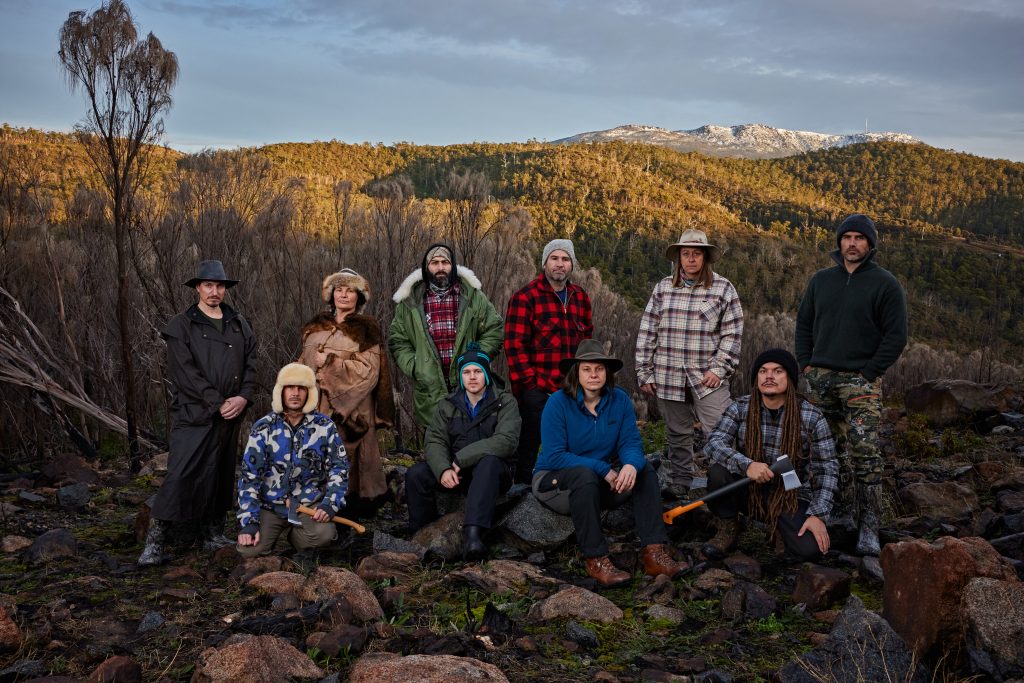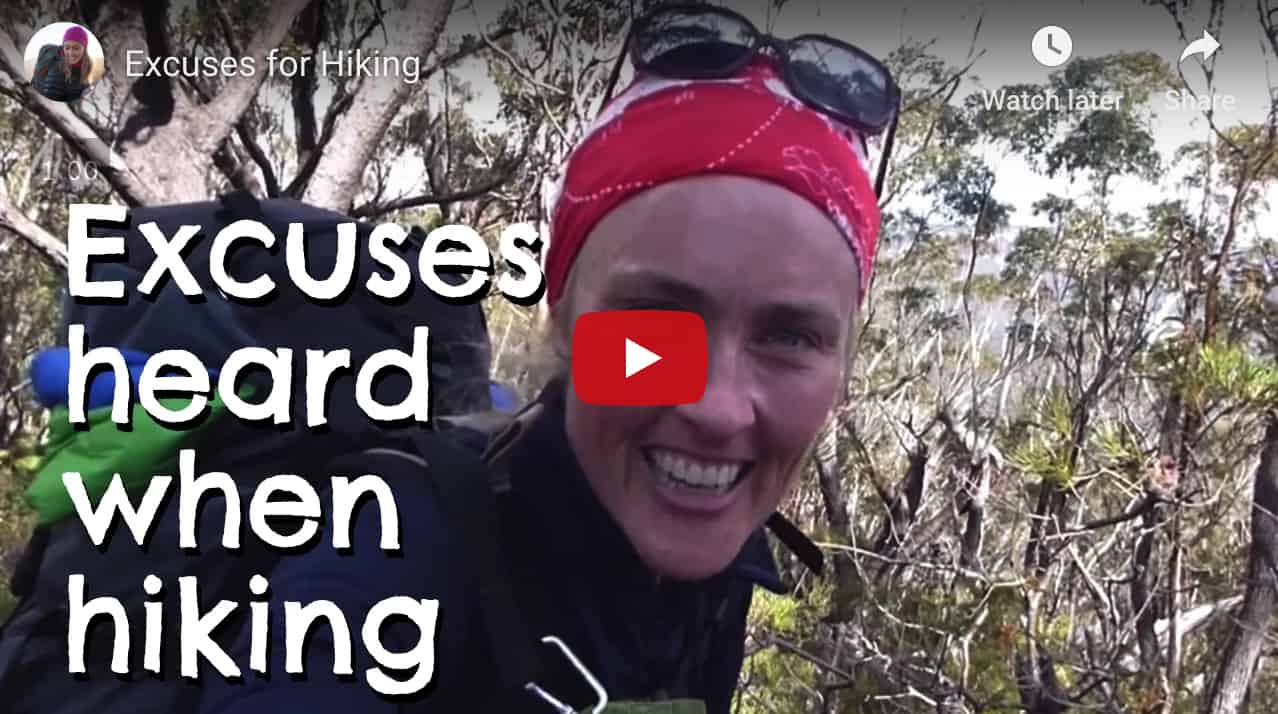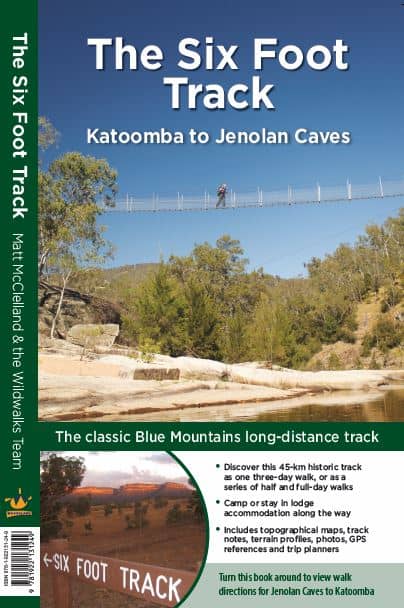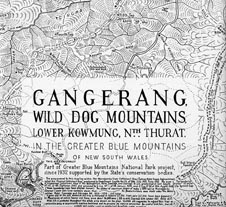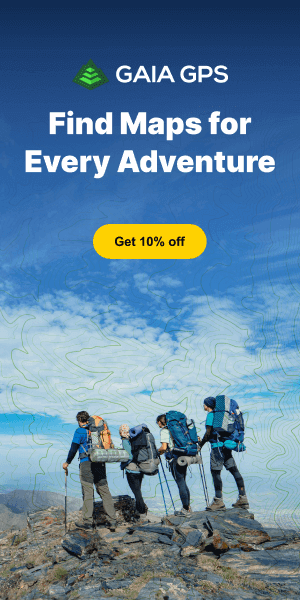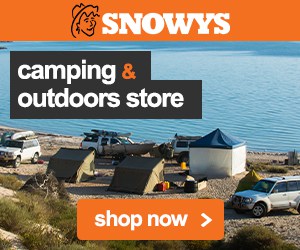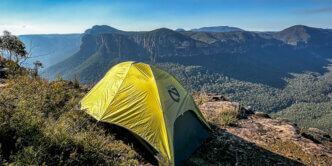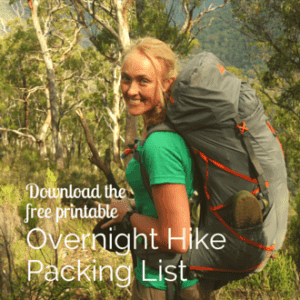- Who is Kate Grarock?
- Alone Australia
- Don't confuse Alone Australia with Survivor or other reality TV shows
- What did you know of ALONE Australia before applying?
- I can imagine the decision to apply (and then accept) was a massive one. How did you come to that decision?
- We first met when you were working as an ecologist with Bettongs; how did your deep connection to animals and the natural world play into your decision AND how your experience unfolded?
- You’re a mad keen (lightweight) bushwalker, what parts of bushwalking benefited you out there? What skills, attitudes and lessons from hiking were you able to draw on?
- What does the briefing and training that the production gave you beforehand involve?
- What did you not expect about the experience?
- What did you learn about nature and Country that surprised you?
- In what ways did it change you as a person? and how you now approach bushwalking adventures?
- If given the chance to do it again, would you?
- What would you say to someone considering applying for the next series? And if they’re successful, what advice do you have for them?
Who is Kate Grarock?
I first came across (Dr) Kate Grarock when she was working with, what I reckon is, Australia’s cutest (and least known) marsupial: the bettong. OMG! Why did we never learn about bettongs in school?
Since then, she has crammed a bucket-load of adventure and exploration into her YouTube channel and Insta, where she champions the philosophy of lightweight hiking, bundled with a solid foundation as an ecologist with a deep love of nature.
Alone Australia
This all made sense when I caught a glimpse of the trailer for SBS’ Alone Australia waaay back in 2022 and put 2+2 together. That looked like Kate, plus she had been unusually silent on social media for a month or so during the year without explanation. Being the professional that I am, I didn’t press her on it and sat it out on the sidelines waiting for when it was official that she could talk about the experience.
Don’t confuse Alone Australia with Survivor or other reality TV shows
For the uninitiated, Alone is a TV series that drops 1o people into wilderness areas, with 10 items they can choose from a list of 40. If you have a dislike and distrust of reality television, I ask you to try thinking about this one differently. During lockdowns, someone I trust asked me that same question and I liked what I saw. Across nine series (this is the first Australian one), a very diverse range of people spend time completely alone (there’s no film crew who go back to their hotels at night – this is nothing like Survivor), in a wild place.
What stands out for me is the different approaches and philosophies people bring to these natural environments. In past US series’, we’ve seen hard-core, ex-military survivalist types with an offensive/attack mindset; to re-wilding/foraging experts who work more with and alongside nature, than fight against it. The revelations come when one end of the spectrum finds themselves moving further to the other, whilst fighting one of the biggest demons there is: being alone with ourselves.
I was delighted to catch up with Kate last week and ask her just some of the millions of questions I have. No doubt more will be answered as the series premieres tonight on SBS (and SBS on Demand).
Needless to say, I’ll be cheering on Team Kate in SBS Alone Australia.
What did you know of ALONE Australia before applying?
I’d watched all of the US and most of the European seasons. I love it. Loved watching the physiological journey of all the characters on the show.
I can imagine the decision to apply (and then accept) was a massive one. How did you come to that decision?
I guess it was the support and encouragement from my partner Elsie that really made the dream a reality. It also probably started with, “OK, let’s have a crack,” and then as it got more and more serious we got more and more excited about the opportunity. There were definitely a few thoughts along the way of “what the heck am I doing?” My cousin Laura is wise beyond her years and said, “I reckon if you get the opportunity you should just do it.” So I took her advice and am really glad I did.
OK, let’s have a crack.
Kate Grarock
But ultimately without the amazing support of my partner and her parents, I would’ve felt uncomfortable leaving my little girl. So I’ll be forever grateful for their support.
We first met when you were working as an ecologist with Bettongs; how did your deep connection to animals and the natural world play into your decision AND how your experience unfolded?
I remember meeting you it was very exciting. So great to meet an amazing woman paving the way for other women in the outdoors space. [Caro: Naw, you!]
I think my connection to animals and the natural world really helped me feel confident in spending time in nature alone. I get a great deal of joy from being outdoors and it’s great for my mental health.
My experience and knowledge of the people surrounding me were a huge bonus for researching the experience. I used my YouTube channel as a cover for asking people lots of questions about living off the land. I also think my background as a wildlife biologist was great as it helped me understand the environment I was in.
I did find the switch from caring and protecting nature to using it as my resource hard. But it was very special to witness firsthand the impact I have on my environment. I think many of us are so far removed from nature these days we fail to truly understand and see the impact of our actions on the environment. It has definitely renewed and inspired me to try and live more sustainably.
Kate Grarock
You’re a mad keen (lightweight) bushwalker, what parts of bushwalking benefited you out there? What skills, attitudes and lessons from hiking were you able to draw on?
I think being really comfortable outdoors with just the basic items was very beneficial for this experience. I do a lot of solo hiking and with that, I have had to develop what I call good mental gymnastics – where you catch thoughts that aren’t helpful and either stop them or work through them to settle the mind. That was extremely helpful while on Alone.
I also draw a lot of happiness and joy from nature and that was a real asset on the cold long wet days. The other thing I think helped was the less sexy survival skills of being super diligent with the basics like staying warm, dry and well-hydrated.
What does the briefing and training that the production gave you beforehand involve?
It’s so cool. It was like scout camp crossed with film school, like a dream camp for Kate.
We had some very powerful palawa people talk to us about the history of lutruwita (Tasmania).
We got camera training – that I hope to bring into my YouTube channel and also got a lot of safety briefings and how to use our safety equipment should something happen. There was a lot of info on the rules and I was very impressed with how seriously they managed the protection of Australian native species. And there were what felt like hundreds of gear checks to make sure we were only taking what we were allowed. Producers of the Scandinavian series came in and provided some amazing insights into their experiences.
What did you not expect about the experience?
I was surprised how difficult it was for me to make the switch from caring for the environment and practising leave no trace to having to see it as my resource.
I was able to do it but it was a hard mindset change. It also made me realise we take from nature every day, but we don’t realise it because we are so disconnected from it. But being out there and seeing the direct impact I had on plants and animals to survive brought that into crystal clear focus for me.
What did you learn about nature and Country that surprised you?
It definitely deepened my connection to the environment and gave me a good wake-up to do more to care for it.
In what ways did it change you as a person? and how you now approach bushwalking adventures?
An experience like that gives you a new lens to view the world and for that I will always be grateful. It really was life-changing.
I think anyone who has done some bushwalking will understand the joys of a hot shower and running water. This experience was like that but on another level. I think about my experience every day (sometimes several times a day). A quiet moment of reflection at a dinner party with friends (I pause for a second and feel grateful for such good people in my life and a full belly of healthy food).
Taking my daughter for a walk through the neighbourhood is bliss. I try to keep that joy and knowledge of how bloody special life is every day, even when life is a bit hard. For example the whole fam(ily) got gastro the other day and I had pure joy and a nice warm shower on my back as I lay on the floor.
My bushwalking adventures are also more enjoyable as they feel much more comfortable cooking up a warm meal – experiencing nature in comfort is so lovely.
If given the chance to do it again, would you?
100% – well I’d like to do it in a different location – but I’d love to. I’ll definitely be doing mini survival trips on my YouTube.
What would you say to someone considering applying for the next series? And if they’re successful, what advice do you have for them?
I’d say go for it. It’s an incredible experience. There are massive highs and massive lows. But ultimately I believe the greatest personal growth comes from pushing yourself outside your comfort zone.
My advice would be to do your research and tighten up on any areas you think you need to. I found a lot of mental preparation essential. Learning to meditate and work through hard thoughts and feelings was critical to staying just one more day.
No doubt about it: it was hard – my lips and hands cracked, it was very cold and wet and lonely and the impact of a highly reduced calorie intake is profound on mental health. And those 14 hour cold dark nights allow a LOT of time for thinking. But that’s what also makes the experience so priceless.
When in this crazy busy work do we get that time to reflect on life and how we are living it.



